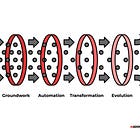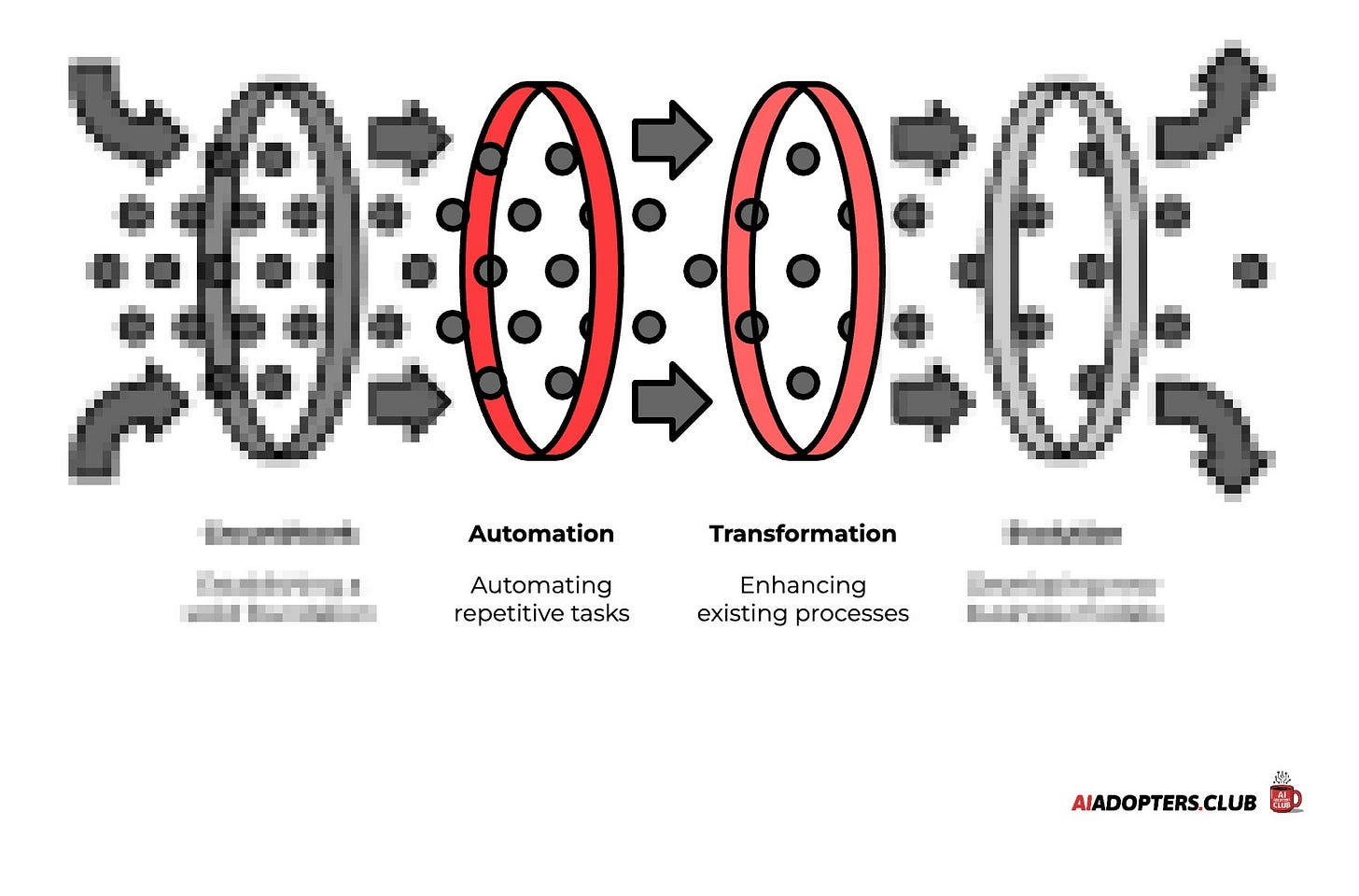The APEX Framework That Turns AI Into Revenue
G.A.T.E. System Part 2: Your Weakness Isn't Worth Fixing
Hey Adopter,
This is part 2 of a 3-part series on AI adoption. Last week, we covered Gate 1 of the G.A.T.E. System: building foundations that don't crumble.
Today: Gates 2 and 3, where you actually start making money with AI.
But first, you need to stop doing what 78% of companies do wrong.
The Manufacturing Disaster
A $500M manufacturing company called me last year. Their customer service was terrible. 2.1 customer satisfaction score. Long hold times. Angry customers. The CEO wanted AI chatbots to fix it.
Meanwhile, their supply chain was world-class. 99.2% on-time delivery. Industry-leading cost per unit. Twenty years of operational excellence. The AI budget for supply chain? Zero.
Six months later: The chatbot was a disaster. Customers hated it more than human agents. But their competitors were using AI for demand forecasting and inventory optimization, eating into their margins.
They'd polished rust while their gold collected dust.
This isn't unique to manufacturing giants. It's the default corporate reflex. Problems scream. Excellence whispers. Guess which one gets the budget?
The Strength Blindness Problem
Here's what happens in most companies. Leadership sees a weakness. Quarterly reviews highlight problems. Someone suggests AI as the fix. Budgets get allocated to the loudest problem, not the biggest opportunity.
It's like renovating your kitchen because the faucet leaks while ignoring the fact that your basement contains a rare wine collection worth millions. The leak is annoying. The wine collection could fund your retirement.
The brutal truth: Your weaknesses aren't worth fixing with AI.
Companies that successfully scale AI achieve 3x higher revenue impacts compared to those stuck at pilot stage. They didn't get there by fixing weaknesses. They got there by weaponizing strengths.
For Small Businesses: Your "weakness" might be that you only have one person handling customer service part-time. Your strength might be that you know every customer personally and have 95% repeat business. Don't build a chatbot. Build AI that helps you remember customer preferences and predict what they'll order next.
Psychology explains why weakness-fixing fails. When you're bad at something, you lack the expertise to guide AI properly. Your weak customer service team can't tell if the AI responses are any good. Your broken operations team can't design workflows for AI to follow.
But your strengths? Those teams know excellence when they see it. They can spot AI improvements immediately. They have the process knowledge to make AI work. It's the difference between teaching a fish to climb trees versus teaching a bird to fly faster.
The APEX Play Framework
Remember the GATE System from last week. You built Gate 1 (Groundwork). Now we're tackling Gates 2 and 3, but we need a targeting system. That's where APEX comes in.




